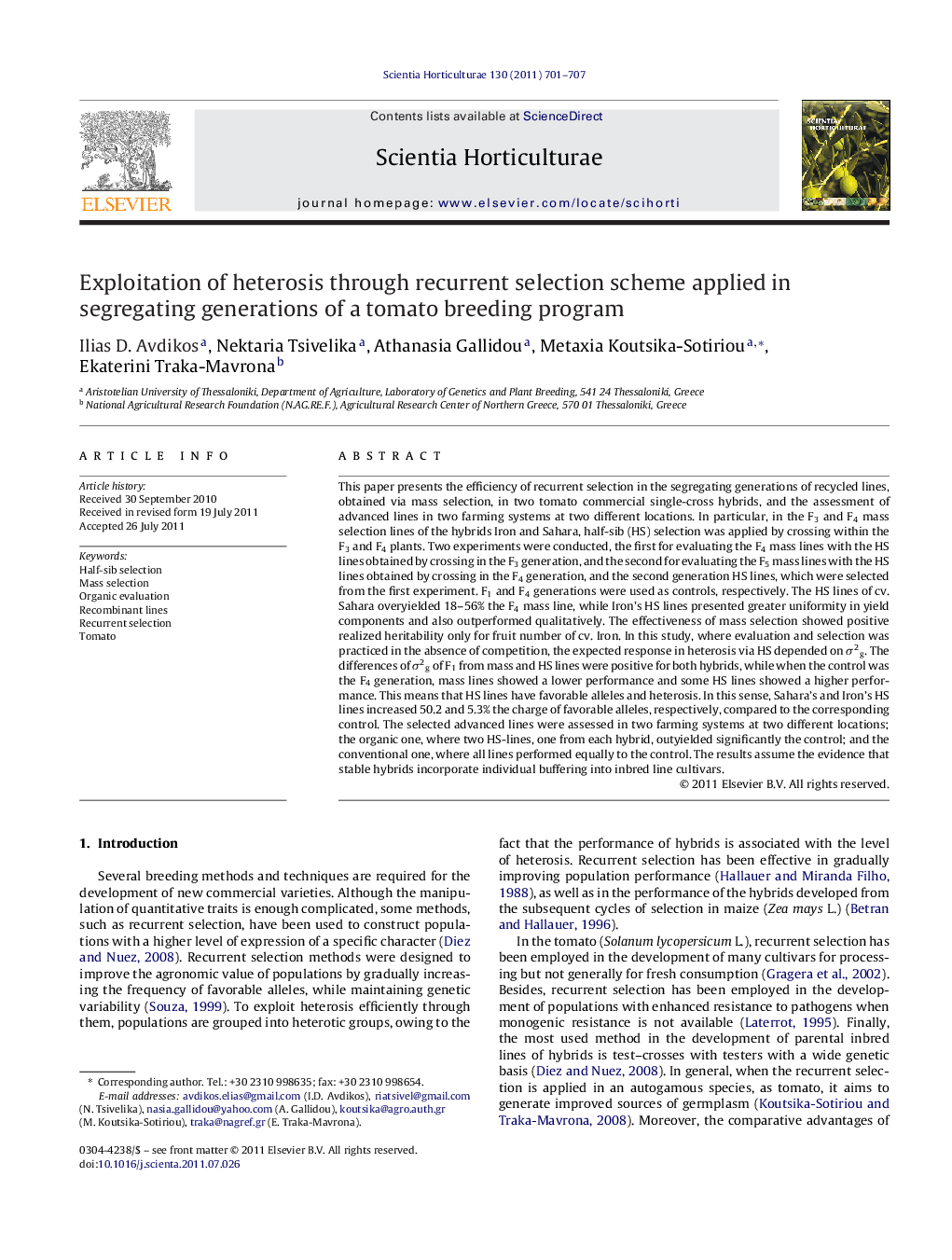| Article ID | Journal | Published Year | Pages | File Type |
|---|---|---|---|---|
| 4567876 | Scientia Horticulturae | 2011 | 7 Pages |
This paper presents the efficiency of recurrent selection in the segregating generations of recycled lines, obtained via mass selection, in two tomato commercial single-cross hybrids, and the assessment of advanced lines in two farming systems at two different locations. In particular, in the F3 and F4 mass selection lines of the hybrids Iron and Sahara, half-sib (HS) selection was applied by crossing within the F3 and F4 plants. Two experiments were conducted, the first for evaluating the F4 mass lines with the HS lines obtained by crossing in the F3 generation, and the second for evaluating the F5 mass lines with the HS lines obtained by crossing in the F4 generation, and the second generation HS lines, which were selected from the first experiment. F1 and F4 generations were used as controls, respectively. The HS lines of cv. Sahara overyielded 18–56% the F4 mass line, while Iron's HS lines presented greater uniformity in yield components and also outperformed qualitatively. The effectiveness of mass selection showed positive realized heritability only for fruit number of cv. Iron. In this study, where evaluation and selection was practiced in the absence of competition, the expected response in heterosis via HS depended on σ2g. The differences of σ2g of F1 from mass and HS lines were positive for both hybrids, while when the control was the F4 generation, mass lines showed a lower performance and some HS lines showed a higher performance. This means that HS lines have favorable alleles and heterosis. In this sense, Sahara's and Iron's HS lines increased 50.2 and 5.3% the charge of favorable alleles, respectively, compared to the corresponding control. The selected advanced lines were assessed in two farming systems at two different locations; the organic one, where two HS-lines, one from each hybrid, outyielded significantly the control; and the conventional one, where all lines performed equally to the control. The results assume the evidence that stable hybrids incorporate individual buffering into inbred line cultivars.
► Recurrent selection in tomato. ► Recombinant lines from F2 of single cross hybrids. ► Selection applied on spaced plant conditions.
